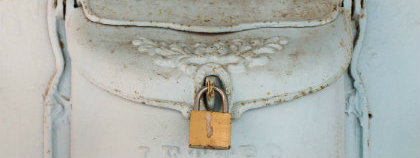Best practice
Saving copies of important messages
It is good practice to save copies of important messages and attachments outside your email, and preferably delete the originals.
An important email or attachment should be treated in the same way as any other significant record. Ideally it should be saved within the appropriate area - either on your personal network drive (usually designated as P: drive), a shared network drive or in a document management system. This will ensure that your most important records are secure and backed up, and is much more reliable than saving to your computer.
Once saved elsewhere, an original email should normally be deleted.
The University is currently producing a policy on records management which will provide more detailed guidance on how, where, and for how long documents of different types (including those sent as emails and attachments) can best be stored. The above recommendations are in line with the proposed policies.
Managing sent and deleted messages
Sent messages
By default, copies of all messages that have been sent to other people are kept in a folder called "Sent Items" (in both Outlook and OWA).
In order to avoid exceeding your email quota it is advised to work through and delete messages in the "Sent Items" folder periodically. It may be preferable to delete the attachments to a message but to keep the body of the message. This will also save space and reduce the amount of your quota you have used.
Deleted messages
When a message is deleted it is not deleted completely from the system, an additional step needs to be performed to permanently delete messages and therefore avoid exceeding your email quota.
In Outlook, by default, messages are moved to a folder called "Deleted Items", which can be emptied in one go by either:
Right clicking on your "Deleted Items" folder and select > Empty or Selectively highlight messages in the "Deleted Items" folder and then delete them;
If messages are emptied from the "Deleted Items" folder in error then can be restored by following:

